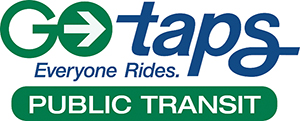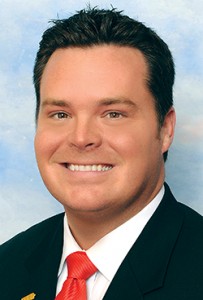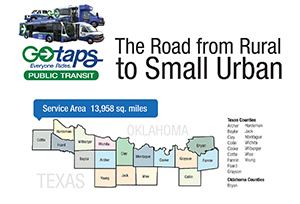
As a father of two, I often get the question, “Dad when am I going to be big enough to do…” whatever they are watching on the Disney channel the time. I have wondered much the same for us when I consider how TAPS began from a small and mostly rural agency.
Texoma Area Paratransit System (TAPS), Sherman, TX, originated with a van and station wagon providing services to 13 senior centers and communities in a three county area. TAPS was a spinoff of the AAA and still reflected many of those characteristics. The leadership that had operated our system was retired or simply no longer around.

CEO/Executive Director
Texoma Area Paratransit System (TAPS)
Sherman, TX
Jump to early 2010 when TAPS was the provider for six rural counties and one of the smallest of the small urbans in the state of Texas. Today, the agency serves 16 counties in north Texas and features a regular fixed-route service that connects into southeastern Oklahoma.
The agency’s biggest expansion was into Collin County last year. Beginning as a provider of paratransit service for that county, within weeks TAPS signed an ILA to operate local bus service for the City of McKinney (the county seat). Not long after that, the city of Allen began a TAPS-operated local fixed-route service with express commuter trips connecting with Dallas Area Rapid Transit’s light rail service in Plano.
This summer, the Texas Health and Human Services Commission awarded TAPS Public Transit a three-year contract to provide non-emergency medical transportation (NEMT) to members of the state’s Medicaid program.
From a position on the board of directors in 2010, to the executive director’s job — with little to no public transit operational experience — I arrived at a critical time for the agency. Everything was falling apart. Spoiler alert — the agency survived and thrived.
In less than four years we were serving 16 counties, seven rural programs, two small urbans, one large UZA, and providing over 700,000 annual trips with a fleet of over 200 units. We made our share of mistakes, but learned some very valuable lessons along the way. In a span of 12 months, the agency grew from less than 100 employees to a payroll of over 250 at last count.
TAPS currently operates a mixed fleet of 130 assorted small and midsize paratransit buses ranging from small on-demand vehicles to fixed route transit buses. The OEM models include ElDorado AeroTech, Goshen and StarTrans for standard paratransit service; Glaval Titan II LF and ElDorado EX Rider in fixed service; Turtle Top in Airport Shuttle Service; as well as MV1s and Ford Transit Connects for individualized paratransit and Medicaid services.

Lesson 1: Communication
People are people. Employees want some basic recognition from their leadership team — and it starts with communication. No one wants to feel out of the loop. Effective written communications, a robust intranet and productive meetings all contribute to keeping a workforce informed.
A quarterly conference gets everyone out of their work environment, offers an opportunity to receive required training, become familiar with management and, most importantly, meet and get to know people from other departments.
Lesson 2: Nurture change
When I came on board, we had a workforce that knew how we did something a particular way but couldn’t tell you why. It had just always been that way. What we needed was insight.
When we began accepting that our situation could be different, the amount of innovation and freshness that resulted was profound.
Today, we are a company that is open minded and always looking for a better way. Once a year we do a full review of one another and of our company. We fully vet any idea proposed to change a process or system. The suggestion gets serious consideration and its author gets serious feedback. We value every idea presented.
TAPS enjoys a reputation for pushing the envelope; functioning on the edge but prepared to fail, which has the potential to change our culture. My management team has permission to fail, so long as there is a lesson learned. I tell them to just get back in there and find the right way — now. Allowing employees the freedom to try something new and take their own approach can be as valuable as any financial reward.
Lesson 3: It takes a team
No man or woman is an island, and that couldn’t be truer in transit.
From day one, I have attempted to build a drawer full of sharp knives I could count on to get the job done. I have built relationships with other transit agencies across our state and across our state border. I wanted to learn why they did what they did and what projects they were working on. Which are the successful agencies and how are they making a difference?
Building relationships with local agencies, community groups, governments and opinion leaders is a must. Our relationships are why our agency has been so successful in attracting funding and support. Having the community see us as a partner that accomplishes its goals has helped us earn our strong reputation.
Raising a strong, healthy transportation operation in today’s environment is a challenge. The keys to success are being open to new ideas, building both public and private partnerships, engaging both our customers and our employees, and having a strategy for where we want to go.
